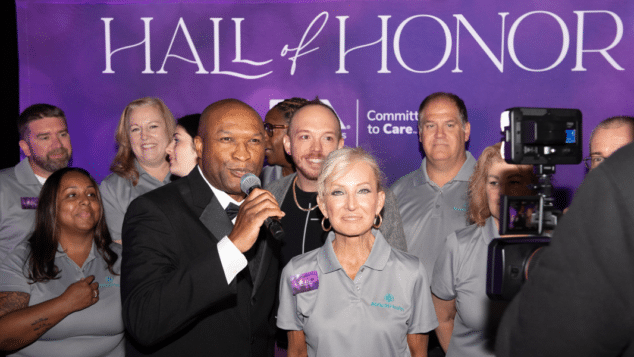Legal Concerns for Restarting In-person Meetings

Q: My organization is making plans for restarting in-person meetings. What should I be concerned about from a legal perspective?
A: There are new issues that you should address, and you also should make sure your association is covered on some of the more traditional legal concerns relating to meetings. That includes health and safety, force majeure and intellectual property.
Health and Safety
COVID-19 does not appear to be going away, and no one knows what the next health crisis might be. Recent experience has reminded us of the importance of adopting meeting attendance policies that not only comply with applicable national, state and local mandates and other guidance, but also reflect the needs and culture of the association’s membership. While they must follow the most stringent national, state and local rules applicable to their meeting site, associations can, if they like, adopt more restrictive safety protocols. Thus, for example, some associations have elected to require that attendees be fully vaccinated and/or have had a negative COVID-19 test just prior to the meeting. Attendees may be required to provide proof of vaccination or self-verify. Those that require proof of vaccination may elect not to retain copies of that proof as it generally includes personal health information.
In any event, once associations establish their protocols, they should communicate them to all meeting attendees, including exhibitors and other vendors. As a condition of attendance, many associations now require attendees to sign a form that includes: (i) an acknowledgment that in-person meeting attendance during the ongoing pandemic carries risk due to the contagious nature of the COVID-19 virus; (ii) representations that they will not attend the meeting if they are symptomatic of COVID-19 in any way (even if fully vaccinated against COVID-19) or if they believe they have recently been exposed to someone with COVID-19; (iii) representations that they will comply with all association protocols; and (iv) an agreement to assume all risks associated with attendance and waive any claim for liability against the association. The communication should make clear that the rules applicable to the meeting may change over time. Agreements between associations and their host facilities and vendors should include comparable health and safety requirements for any staff working at the association’s meeting.
Force Majeure
By now, association executives surely recognize the importance of having well-drafted force majeure provisions in their facility and vendor agreements. Historically, hotels, convention centers and other vendors have argued that force majeure provisions permitting termination only if performance is “impossible” or “illegal” should be read narrowly and should be applied in limited circumstances. These past months have shown that facilities and associations have not always agreed as to how force majeure provisions should be interpreted and applied in a COVID-19 context. As associations negotiate agreements for future events, they should provide themselves much stronger authority for terminating under force majeure by including language that allows for termination not only when it is impossible or illegal for the facility to make the venue available, but also when it is inadvisable or impracticable for the association to hold a successful meeting under the terms contemplated by the underlying agreement.
In addition, associations should try to avoid clauses that would require them to provide notice of termination due to a force majeure event within, for example, 10 days of its occurrence. With “events” like COVID-19, it is difficult to identify the specific date when the force majeure event occurred and triggered the requirement to provide notice. COVID-19 also makes it difficult for associations to determine how far in advance of a meeting they can reasonably cancel. While associations and their members often need to know well in advance if the meeting is happening, facilities typically take the position that it is premature to claim force majeure until just prior to the event. Thus, to the extent a notice provision cannot be avoided, it should relate to the timing the association and its members need to cancel travel plans and switch from an in-person to a virtual meeting, not to the date the force majeure event “occurs.”
In addition, the COVID-19 experience has made clear that it is important for associations to take a close look at the cancellation and attrition provisions in future agreements. For example, given the uncertainty of the long-term impact of COVID-19 on meeting attendance, associations should negotiate for maximum flexibility to adjust room block numbers in the years and months preceding future meetings. To the extent possible, existing agreements also should be reviewed to determine whether they can be amended to reflect what are likely to be more realistic future attendance and related food and beverage numbers.
Intellectual Property
In-person meetings afford meeting attendees opportunities to network that are simply unmatched in a virtual environment. And associations often want to memorialize those networking events through photographs. As associations restart in-person meetings, they should make sure they obtain permission from the individuals being photographed. The necessary permissions can easily be incorporated into registration materials.
Associations also should review and update speaker agreements to ensure that, at a minimum, speakers:
- Provide the association with a non-exclusive license to use the speaker’s presentation (for purposes of publishing, distributing, creating compilations, etc.);
- Represent that their presentation is original (or that rights have been obtained and credit will be given), accurate to the best of the speaker’s knowledge, does not infringe on the personal or property rights of others and does not include any material that is defamatory or otherwise inappropriate;
- Grant the association permission to use the speaker’s name, likeness and biographical material in connection with the meeting (and future uses); and
- Acknowledge that they will not receive any compensation for their presentation.
COVID-19 has prompted changes in meetings that are likely to remain in place for a long time. As associations restart in-person meetings, they should take care to address both new and old meeting-related legal issues.
Tags
Related Articles
Double Your Footprint: Enhancing Conferences with a Hybrid Event Workflow
By combining on-site engagement with a digital experience, hybrid events can attract diverse audiences, boost...
The Emergency Nurses Association Utilizes Design Thinking to Reimagine its Awards Ceremony
In a prime example of intrapreneurship, the ENA utilized design thinking to innovate within the...
Top Ten Skills Needed to be a Meeting Planner of the Future
Now, more than ever, meeting planners need to be flexible and savvy. Read on for...




